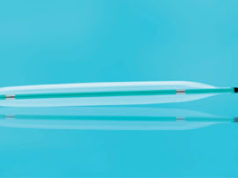
Two-year outcome data from the BIO-RESORT randomised controlled trial, which were presented in a late-breaking clinical trials session by Marlies M Kok (Thoraxcentrum Twente, MST, Enschede, the Netherlands) and simultaneously published in EuroIntervention, indicate that sirolimus-eluting stent with a biodegradable polymer (Orsiro, Biotronik) has a lower rate of target lesion failure than Resolute Integrity (Medtronic).
Results from this large scale three-arm trial with complex all-comers population treated with highly dissimilar contemporary drug-eluting stents confirmed a trend seen with the one-year data, supporting the use of ultrathin bioabsorbable polymer drug-eluting stent. At the two-year follow-up in the BIO-RESORT trial (n=3,514), all three stents—the third stent being the everolimus-eluting stent with a biodegradable polymer (Synergy, Boston Scientific)—in the study showed low target vessel failure rates. Orsiro demonstrated a favourable trend without reaching statistical significance (Orsiro 6.6%, Synergy 6.8%, Resolute Integrity 4 8.3%).
The landmark analysis, evaluating the incremental events between the first and second year of follow-up, showed patients in the Orsiro arm with significantly lower rates of target lesion failure in comparison to the Resolute Integrity stent arm (respectively Orsiro 1.1%, Resolute Integrity 2.4% p=0.02) and numerically lower than in the Synergy arm (Synergy 1.6%, Resolute Integrity 2.4% p=0.22). Furthermore, the landmark analysis demonstrated that Orsiro achieved the lowest rate of target lesion revascularisation beyond one year across all arms (respectively Orsiro 0.6%, Resolute Integrity 1.5% p=0.04; Synergy 0.9%, Resolute Integrity 1.5% p=0.18).
This data is in line with previously presented BIOFLOW-V6 results demonstrating significantly better outcomes for Orsiro compared to a permanent polymer drug-eluting stent (Xience, Abbott).
Alexander Uhl, Senior Vice President Corporate Marketing at Biotronik, says: “The results reported in the BIO-RESORT reinforce those of BIOFLOW-V, showing ultrathin 60-micron bioabsorbable-polymer Orsiro outperforming contemporary permanent polymer DES in clinical performance. These results add to the growing body of evidence that indicate Orsiro can provide a real advantage in patient outcomes.”










